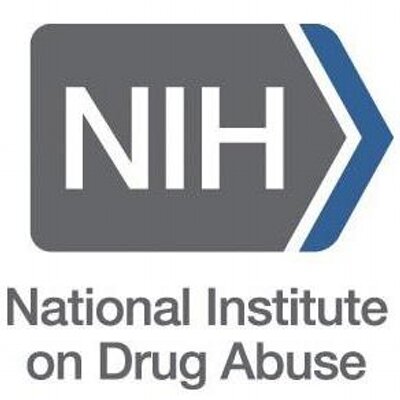Suboxone Treatment
What is Suboxone?
Our facility provides Medicated-Assisted Treatment (MAT) for Suboxone (Buprenorphine/Naloxone).
Medicated-Assisted Treatment (MAT) is the use of FDA- approved medications, in combination with counseling and behavioral therapies, to provide a “whole-patient” approach to the treatment of substance use disorders.
We follow an integrated approach that includes med management, counseling and behavioral therapies.
Our physicians have taken the proper training and are approved to safely administer Suboxone to treat opiate addiction. We have trained counselors and therapists to offer behavioral therapies.
Call us at 469-714-0006 or email us at info@doctorhealsmind.com
Suboxone treatment for opioid abuse
- How do I know if Suboxone is right for me?
- How it works and is it safe?
- The effectiveness of treatment
- Can I become addicted?
- How long do I need to be on Suboxone?
- Does Suboxone interact with other drugs?
- The effectiveness of treatment
- The benefits of treatment and counseling
- The side effects of Suboxone
- What if I no longer wish to take Suboxone?
If you are struggling with an opioid addiction, taking a medication such as Suboxone within the confines of a medication assisted treatment program can help you stop your addiction in its tracks. Suboxone is both safe and effective, and aids in helping decrease withdrawal symptoms and drug cravings. To determine if Suboxone is right for you, speak to a physician affiliated with a medication assisted treatment program who can review your treatment needs to see if this is the appropriate medication for you.
Suboxone, a partial opioid agonist, is a prescription medication that is comprised of a mixture of both buprenorphine and naloxone.
Buprenorphine, one of the primary active ingredients in Suboxone, is a partial opioid agonist, meaning that it triggers the same receptors in the brain that opioids do. However, a high is not produced when Suboxone is consumed. Therefore, when buprenorphine is present in the system, an individual will experience relief from his or her withdrawal symptoms and drug cravings without having to continually take the opioids he or she had been abusing.
An opioid agonist, naloxone is also known as an opioid blocker. It is also an active ingredient in Suboxone and works to diminish the troublesome impacts that opioids can have on the body. Upon taking Suboxone, the naloxone in the medication works to stop withdrawal symptoms and cravings, allowing the individual to be free from the vicious cycle of opioid abuse.
An exceptional amount of research has been conducted proving that Suboxone is both safe and effective in treating an opioid addiction in a medication assisted treatment program.
Research has proven that Suboxone is effective in actively helping end opioid addiction. Those who use Suboxone have reported that, while taking the medication, it was helpful in lessening withdrawal symptoms, as well as decreasing cravings to use. Unlike other opioids, Suboxone does not create the same high that would otherwise be achieved. Therefore, while Suboxone is effective in treating opioid addiction, it is also much less likely to be abused. If a patient attempts to take more Suboxone than is prescribed, he or she will still not be able to get high like he or she would if OxyContin or Vicodin were taken.
You and your treatment provider will work together to decide whether or not Suboxone is the appropriate medication for you. However, it is important to acknowledge that when a medication, such as Suboxone, is used in a medication assisted treatment program, patients are more likely to achieve a clear state of mind that will assist them in reaching their recovery goals.
Yes. Suboxone, like other medications, can lead to addiction if used inappropriately. However, if used as a part of a medication assisted treatment program, Suboxone is completely safe to use. Comprised of both buprenorphine and naloxone, Suboxone triggers opioid receptors in the brain that would have otherwise been triggered through the use of drugs like heroin, morphine, or painkillers. By activating these receptors, Suboxone is effective in lessening withdrawal symptoms and cravings without producing a disorienting high.
Only you and your physician will be able to determine the length of time that you take Suboxone. Research has proven that Suboxone can be used both short-term and long-term without causing serious effects. Some individuals take Suboxone for a couple of months prior to tapering off, while others stay on Suboxone for years. This medication is beneficial as it helps stop drug cravings and withdrawal symptoms so individuals can stay focused on living up to their daily responsibilities and expectations. Suboxone’s effectiveness always remains the same, so you can continue to take it as needed.
There is always a possibility for drug interactions with any medication, and Suboxone is no different. Be sure to disclose all of the medications that you are taking to your physician prior to beginning treatment that includes Suboxone. Taking Suboxone while using other opioids can lead to the development of withdrawal symptoms. If you are on Suboxone, you should not take sleeping pills, narcotic pain medications, sedatives, or drink alcohol. Always speak with your physician about what medications you can and cannot take with Suboxone.
Pushing past an opioid addiction can be incredibly difficult, because once an individual becomes dependent on opioids, he or she will undoubtedly experience withdrawal symptoms if he or she stops using. Knowing that withdrawal is lurking in the shadows is often what keeps individuals abusing the drug, even if it is dangerous. However, using Suboxone can be beneficial in the sense that it prevents these withdrawal symptoms from developing, which makes an individual more open to receiving treatment. While Suboxone works effectively in reducing withdrawal symptoms, it is also helpful in ceasing tempting cravings.
Pushing past an opioid addiction can be incredibly difficult, because once an individual becomes dependent on opioids, he or she will undoubtedly experience withdrawal symptoms if he or she stops using. Knowing that withdrawal is lurking in the shadows is often what keeps individuals abusing the drug, even if it is dangerous. However, using Suboxone can be beneficial in the sense that it prevents these withdrawal symptoms from developing, which makes an individual more open to receiving treatment. While Suboxone works effectively in reducing withdrawal symptoms, it is also helpful in ceasing tempting cravings.
- Attention disturbances
- Fainting
- Back and abdominal pain
- Irregular heartbeat
- Coordination problems
- Sleepiness
- Dizziness
- Lightheadedness
- Diarrhea
- Vomiting
- Runny nose
- Constipation
- Chills
- Infections
- Weakness
- Blurred vision
- Painful tongue
- Numb mouth
- Low blood pressure
- Sweating
- Sleeplessness
- Nausea
- Generalized pain
- Headache
Even though taking Suboxone for a long period of time is safe, beginning a Suboxone regimen does not mean that you will be on it for the rest of your life. If you and your physician decide that Suboxone is no longer the most effective medication for you, or if you are ready to stop using the medication altogether, you can begin to taper off of it until your body is clear of the medication. At this point, you can either switch to another medication or remain off of such medication all together.
What can be done to help with suboxone therapy?
Friends and family may be the most helpful to a loved one who is going through suboxone treatment. .
How to Support Your Loved One During Medication Assisted Treatment:
- Learn as much as you can about Suboxone, medication assisted treatment options, and addiction as a disease so that you can better understand what your loved one is going through during treatment.
- Always encourage your loved one to keep up with all appointments having to do with his or her recovery.
- Show your support by respectively keeping tabs on your loved one by checking in on how his or her therapy sessions are going, how the medication is working, and so on.
- Always offer congratulations when a loved one accomplishes something, even if it is small.
- Know that the journey towards recovery is often filled with obstacles. Keep your hope alive, especially when your loved one seems to need it most.
- Obtain support for yourself during this time.
How You Can Be Successful in a Medication Assisted Treatment Program:
- Always abide by the instructions your physician has provided you with, and keep true to all recommendations regarding your treatment plan.
- Show up for each and every appointment you have to receive your Suboxone.
- Follow all guidelines, including avoiding alcoholic beverages while using Suboxone.
- Participate in group therapy sessions so that you can obtain the most information and support.
- Remain open and honest with your counselor so that he or she can properly help you. A counselor is not there to judge, only to help you achieve your goal of sobriety.
- Always speak up if you have questions, problems, or concerns while taking Suboxone. Your treatment provider will be monitoring your care; therefore, if you feel something is not right, speaking with him or her may fix the problem.
- Do not take any other opioids while taking Suboxone.
How we treat opioid abuse?
Quick Tip: No two people are affected the same way by opiate abuse and there is no “one-size-fits-all” for treatment. It may take some trial and error to find the treatment that works best for you.
Scientific Backing of suboxone treatment for opioid abuse
Looking at the use of suboxone for opiate abuse and reasons for prescribing them.
NIDA study compares buprenorphine/naloxone combination to extended release naltrexone.
Suboxone is a medication approved by the FDA for the treatment of opiate abuse such as heroin addiction.
Key Benefits of Therapy at Exult
Adolescents are going through high-stress times. At Exult, we have multiple professionals who are licensed in helping your child.
- Group therapy
- Individual therapy
- Access to on-site psychiatrist
- Providers work together
- Tailored programs
- Afternoon and weekend hours
- Yoga and Mindulness
Therapy is cognitive behavioral therapy and intensive outpatient to help manage mood symptoms, improve concentration, and improve interest in activities.
We do take multiple insurances such as United, Blue Cross Blue Shield, Aetna, and Medicare but we suggest you discuss any major medical decisions with your insurance provider.
We are able to help all the different types of depression at Exult Healthcare.
We offer medication management but we try to keep an open discussion between the client, therapist, and psychiatrist as to the needs of the client.
We offer screenings to check if you or your loved one.





